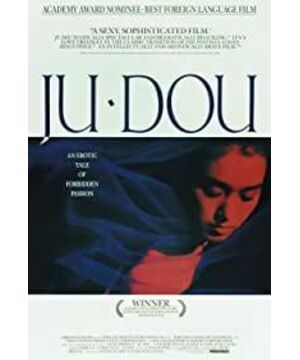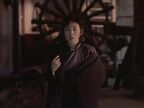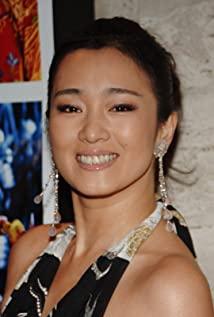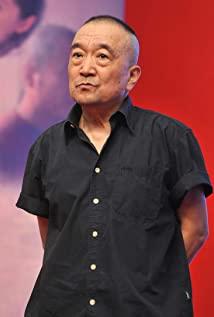Therefore, if you want to know how beautiful Gong Li is, you must watch "Ju Dou".
After watching "Ju Dou", you will know how poisonous Lao Mouzi's eyes are, and how beautiful Gong Li is. This kind of beauty is rough, natural, and does not require any modification. It is placed in the wilderness and it can pierce your eyes brightly. It not only has the traditional beauty of Chinese women, but also the beauty of going international. In a word, this kind of beauty is not at home or abroad. People have the instinct to pursue beauty. Gong Li's beauty is cross-cultural, cross-racial, and cross-regional.
The beauty of tragedy is probably to tear up beautiful things for you to see. In the darkness, obscurity, and depression, the beauty of bright colors is indeed needed. This beauty is even more needed and more important because of the darkness of the environment. However, such beauty will eventually be swallowed by the environment and disappear, and it will be even more exciting. .
Lao Mouzi's early films were "Tear the Beauty to You". Similarly, there is "Raise the Red Lantern". When I was a child, I didn't like that movie very much. Perhaps, some literary works, under a certain age, you can't see the beauty inside, and you can't appreciate the power of tragedy.
The story of "Ju Dou" is actually very simple: In a certain village in China in the 1920s, Mr. Yang from the Yang Family Dyeing Workshop had a physical defect, and his biggest wish was to pass on the family line. After torturing his wife in two rooms, he bought chrysanthemum at a high price. bean. Yang Tianqing was not originally named Yang, but in the years of starvation, his parents died, and he was raised by Elder Yang. Of course, he became a perennial unpaid drudge in the Yang family. Ju Dou endured Yang Jinshan's inhuman abuse, which made Tian Qing feel compassionate. In order to get rid of Jinshan, Ju Dou took the initiative to seduce her cowardly nephew, Tian Qing, after discovering that Tian Qing was spying on herself. The latter two were born with an illegitimate son Tianbai, who killed his father when he grew up.
Watching this 20-something movie in 2016 may feel too exaggerated, but it was a rather bold movie in 1990, not only because of the taboo beauty in the movie, but also because of the touch in the movie. The dull pain. Well, let's use our eyes today to examine the meaning of this movie for the present. Who is the biggest villain in the movie? There is no doubt that most people will think it is Yang Jinshan. Although Tianbai killed his father, he was a child after all. We Chinese always have a natural bottomless tolerance towards people like "children". From beginning to end, Tianbai had no lines other than identifying the family structure. Children with few words will give people a feeling of "not sensible, natural and weak". Therefore, when the historical background has changed, I think that when watching this movie in 2016, the most important thing to pay attention to is the character Tianbai. His heaviness, his forbearance, his speechlessness and his cruelty as a child.
Tian Bai is not stupid. When he was very young, he used titles to show the identity of a family. At the same time, he also used the identity of the child. Do you think he really loves the person he calls "daddy"? I don't think it is necessary. Yang Jinshan's dying struggle did not make him feel painful, but showed a cheerful smile. Maybe you think he doesn’t understand the meaning of death, but the silence and solemnity sitting high in the coffin shows that even if he does not necessarily understand what death is, he can still adapt to the environment. In short, he can feel what it is. "It should be done". In my opinion, "death" gives Tianbai a kind of pleasure-this kind of pleasure was born in the repressive and deformed environment of the Yang Family Courtyard, and the most important thing is an abnormal desire to possess. This is why Tianbai can laugh at Jinshan's death, and throw his own father into the dye pond that has ruined his "father" again.
In essence, Jinshan, Tianqing, and Tianbai are all a kind of people. The defenders and heirs of patriarchal authority are just different forms of expression. They all want to control the closed feudal environment of the Yang Family Courtyard. The bean is the only victim and the only trophy.
In a sense, Zhang Yimou is exactly this kind of patriarchal flogging, although he himself can't control the patriarchal consciousness and feudal consciousness that he reveals in his own bones, this is indeed an interesting paradox. His film "The Hawthorn Tree Love" in previous years is actually a concentrated expression of this consciousness, but it reflects the shameless exploitation of women by male power. Isn't the virgin complex one of the manifestations of this male power? We have never heard of "virgin plot".
Lao Mouzi may be able to see this consciousness in his own bones, so he criticized these most fiercely, and it is this director who developed the virgin land of female beauty and made women shine on the international stage. Perhaps he just wanted to take this beauty as his own, but as a generation of intellectuals and artists, he had to reluctantly push it out to let more people see this beauty. From the inside to the outside, there is a sense of helplessness and entanglement.
Oedipus in Greek mythology is the most famous tragedy. In fact, the power of human beings to produce soul-shaking tragedies is no different between China and foreign countries. The death of the father in the sky is an outbreak of an Oedipus plot. From beginning to end, Tianbai was the most silent. His soul, his inner world, the movie did not directly reveal it, and this is heavier than the tragedy in the movie-when the older generation is gone, is there an old, decayed body in the young body? soul?
In our age, there is still no shortage of silent children. They are like autistic, and they don’t confide the pain in their hearts to anyone, those things that he doesn’t understand, that tear his outlook on life, he also loses the ability to communicate with others, and their joys and sorrows seem to have been taken away. Only crime, violence, and possession are left behind with a feeling of anger that can bring them pleasure. When he gradually grew up to be powerful, not only did he not become a newcomer, but instead copied everything about the hegemonic parent he once hated the most like a fatal inheritance.
Judou is beautiful. Everything in beauty is fragile. Beauty also has the fragility of pure whiteness. As a victim and trophy, Judou finally ended a tragic life in the fire and completed Jinshan's revenge.
At the end, I didn't actually hate Jinshan so much. If a system feels that those immoral and unjust things are right, he is just an ordinary person. Because in this system, if you are kind to you, you become a slave, and women, especially women who spend money, are also slaves. All people don’t think this is a kind of harm to humanity, but a kind of morality. Then Jinshan is not a bad person. If you have to blame, you should blame this system; if you want to change it, it is serious to shake this system in essence. thing. After all, he had a compassionate heart, adopting a child who was about to starve to death, spending money to buy a woman who was less respectful, and to some extent gave her freedom and compassion for her own domestic animals. This person is only shaped by the environment. , No more hateful than those village elders who proclaim benevolence and morality.
Breaking through this system is too difficult and a long way to go. To this day, it cannot be said that it has completely shaken the decadent and harmful Confucian foundation. In the movie, Judou is a person who dared to break through ethics and longing for freedom. She mentioned more than once that Tianqing should take herself and her children away. However, Azure is not only cowardly, but also realistic. From the beginning of the movie, it was explained that today is a troubled world, and it is not easy to survive in troubled times. Perhaps leaving this environment, survival is a problem, and it reflects people's fear of changing their inherent patterns and the inability to abandon their current possessions. Tianbai wants to inherit the dyeing workshop. Since he wants to inherit this decadent environment, he must accept this fate. Either complete abandonment or submissive possession, there is no compromise between the two. It's like, accepting the job, house, and car your parents are looking for, you have to be controlled by others, which is actually the same.
The scene in Changranfang's copulation was beautiful, bright red, and intense. Lao Mouzi deserves to be a photographer, and Wu Tianming's true biography of color is quite eye-catching. Gong Li's acting skills are really good. It took so many years to appreciate her.
View more about Ju Dou reviews










